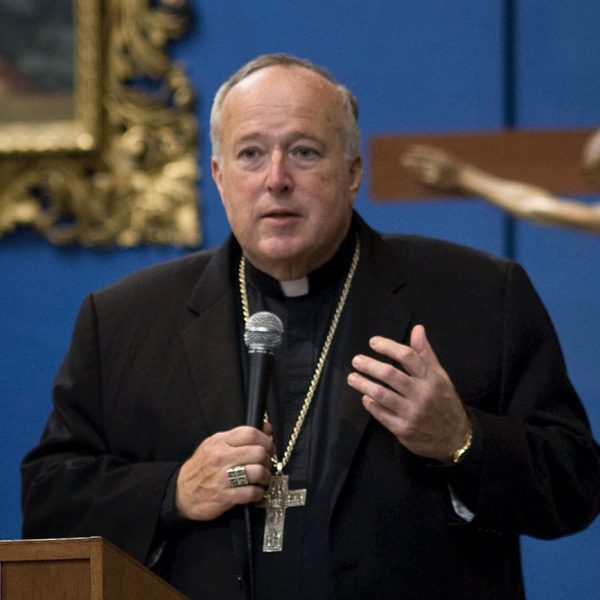By Cecilia González-Andrieu
Six months ago, we set out together on a journey to walk more closely with Christ.
Preparing: In September, we took stock of our world recalling the Second Vatican Council’s insight that the Church has “the duty of scrutinizing the signs of the times and of interpreting them in the light of the Gospel.” This is a wonderfully concise description of what it means to be Christian because “the joys and the hopes, the griefs and the anxieties of (the people) of this age, especially those who are poor or in any way afflicted, these are the joys and hopes, the griefs and anxieties of the followers of Christ.” The journey we’ve been on has been to help us develop the tools to answer this call.
Step One: We dedicated October to discernment. After all, why would we bother developing ourselves as Christians if we didn’t first ask ourselves why? We are surrounded by choices: We can care, or we can walk away. How do we pay attention enough to ignite our hearts for the work Jesus needs us to do?
Step Two: In November, we committed to accompanying our world because the living God is speaking in all of reality. Just as the disciples on the road to Emmaus had Jesus join them on their journey (Luke 24:13-35), we are asked to do the same with Jesus on one side, and those who need us on the other. Ours is not an abstract faith of ideas, but a practice of intimate companionship with all God loves and the vulnerable who cross our paths every day. This is how we best read the signs of our times.
Step Three: Throughout December, I asked us to ponder the gift of the wisdom of a global religious tradition spanning two millennia with the invitation to expand our imagination. If we want to interpret reality by the light of the Gospel, then we must do so within our communities of faith. Intractable problems are only unsolvable until they’re not. The unexpected, the apparently impossible, our history is full of moments when God’s imagination overflows the limits we have imposed on ourselves.
Step Four: In January, we looked at discipleship and how Christian faith isn’t a set of rules and observances to learn, but a way to act in the world. Jesus realized the urgency of claiming power for others when confronted by the poverty, oppression and violence of the world. Sickness, hunger, cruelty, when seen through the expanded imagination of the Gospel, transform into healing, feeding, freeing. We are truly disciples when our actions match what we profess to believe.
And today we come to Step Five, which is the culmination of our journey and completes the circle. This final step is like the marker on a GPS—our destination, guiding every other step we take. Each choice we make must answer the question: Are we on the path of the Reign of God?
Popular culture sometimes conflates the Reign of God with the idea of an afterlife — an otherworldly place only accessible after death. However, that’s not what our Sacred Scriptures and the witness they left us of Jesus’ own life mean by the Reign of God. A simple way to refer to it is as “here and not yet,” meaning that it is always unfolding in our midst and that at the same time, its fullness has not been realized … yet.
How do we know the Reign? Scripture is full of evocative descriptions of what God’s reign over all of reality would look like. It’s the beatitudes (Luke 6:20-26), where the hungry are filled, the sorrowing laugh and the poor and vulnerable inherit all God wants for them. It’s the description in Isaiah (11:6-9) of that kingdom where wolf and lamb lie together, calves and lions share their food, and nothing is hurt or destroyed.
In other words, we know we’re on the path of the Reign of God because everything is as beautiful as God wants it to be, and we are cooperating in building up that peaceful, abundant, overflowing beauty. Filled with the joy of building God’s Reign, we’re ready to begin the journey again, more attentive, compassionate and committed to embodying the Gospel in our world.
Theologian Cecilia González-Andrieu, Ph.D., is a professor at Loyola Marymount University.









